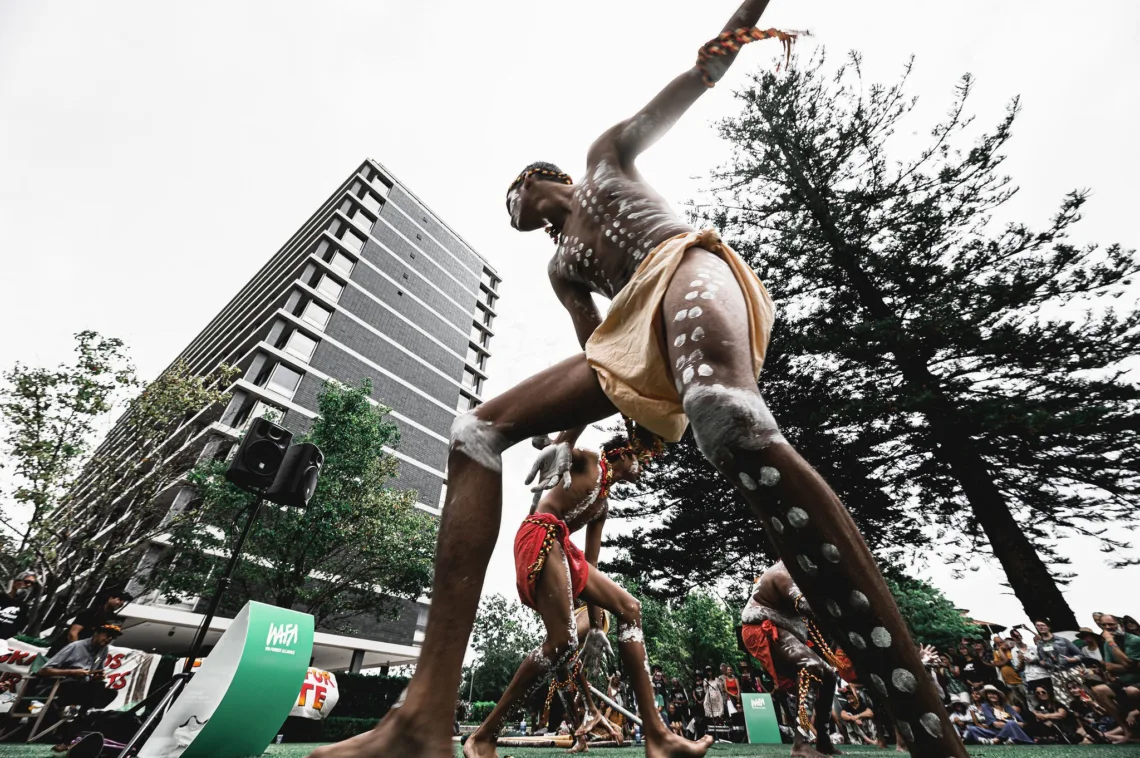A group of Australian indigenous people lodged a complaint with Singapore’s DBS Bank and 11 other international banks on Tuesday.
The background is supposed to be that the banks are giving a loan of 1 billion dollars to a company that is building a controversial gas project which they believe threatens their traditional land and sea, as well as the future of their culture.
The multibillion-dollar Barossa gas project being built by Australian energy company Santos has been repeatedly delayed by lawsuits from indigenous groups that accuse the company of failing to properly consult them and assess the risk of environmental damage.
Environmental groups have also criticised the project, saying it will exacerbate climate change by releasing large amounts of greenhouse gases that cause global warming.
The Barossa project is located approx. 285 km north of Darwin in the Timor Sea and involves the drilling of deep wells to access the gas. Santos plans to build a pipeline that will run within 7km of the Tiwi Islands north of Darwin. The gas will supply a facility for liquefied natural gas (LNG) near the city.
The complainants say the Barossa project violates their human rights and they want the lenders to stop supporting Santos.
The case comes a few days after the UN General Assembly adopted a resolution to ask the world’s highest court – the International Court of Justice in The Hague – to clarify the obligations major polluters have with regard to the human rights of those affected by greenhouse gas emissions.
DNB in Norway has also received a complaint.
In addition to DBS, the other banks that have received complaints are ANZ, NAB, Westpac and Commonwealth Bank of Australia, Dutch ING, Citigroup, Royal Bank of Canada and Japanese MUFG, SMBC, Mizuho, and the Norwegian DNB.
DBS is among the biggest lenders, with a $60 million loan to Santos.
Singapore’s UOB also participated with a US$50 million loan to the company, documents show, but they are among a group of lenders that have received no complaint.
A total of 23 banks were involved in the $1 billion loan, which was agreed in 2022 and runs until 2028.
The complaint sent to DBS also mentions a bridging loan to Santos that was refinanced in October 2020 with a US$750 million syndicated loan.
A spokesperson for UOB stated the following:
UOB has no direct exposure to this project, and we are not committing to any new project financing for oil and gas projects that have been approved for development after 2022.
The loan was approved when Santos was in the middle of a lawsuit from the Tiwi Islanders. In December 2022, the Federal Court of Australia confirmed that the company had not consulted the traditional owners sufficiently in connection with the establishment of the Barossa project. Drilling and pipeline construction have since been halted.
The US think tank, the Institute for Energy Economics and Financial Analysis (IEEFA), has said the project risks accelerating climate change and questions its viability, given the sky-high costs and litigation.
The Barossa’s offshore gas contains a very high level of carbon dioxide (CO2), at 18% by volume – significantly higher than many other Australian gas fields.
Santos plans to capture the CO2 and store it in depleted wells via an 800-km long pipeline.
But the IEEFA said that it would involve too much energy to compress the CO2 and transport it to storage, and therefore they consider this idea unviable.
The complainants referred to human rights and the Equator Principles in their complaints to the banks.
The Equator Principles are a reference for the financial industry to determine, assess and manage environmental and social risks in projects.

